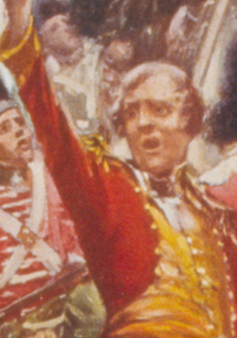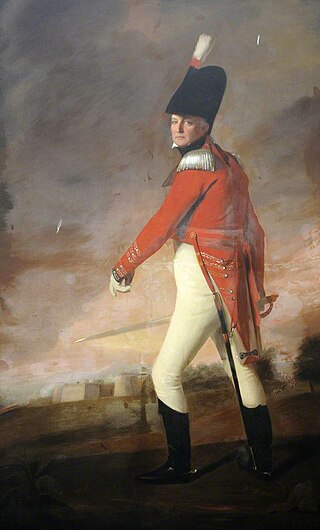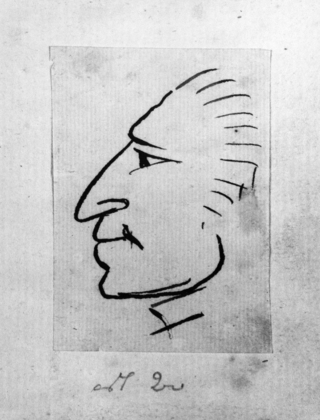Related Research Articles

Field Marshal George Hamilton, 1st Earl of Orkney,, styled Lord George Hamilton from 1666 to 1696, was a British soldier and Scottish nobleman and the first British Army officer to be promoted to the rank of field marshal. After commanding a regiment for the cause of William of Orange during the Williamite War in Ireland, he commanded a regiment in the Low Countries during the Nine Years' War. He then led the final assault at the Battle of Blenheim attacking the village churchyard with eight battalions of men and then receiving the surrender of its French defenders during the War of the Spanish Succession. He also led the charge of fifteen infantry battalions in an extremely bloody assault on the French entrenchments at the Battle of Malplaquet. In later life, he became a Lord of the Bedchamber to George I and was installed as Governor of Edinburgh Castle.

Field Marshal Sir Robert Rich, 4th Baronet was a British cavalry officer. As a junior officer he fought at the Battle of Schellenberg and at the Battle of Blenheim during the War of the Spanish Succession. He was then asked to raise a regiment to combat the threat from the Jacobite rising of 1715. He also served with the Pragmatic Army under the Earl of Stair at the Battle of Dettingen during the War of the Austrian Succession. As a Member of Parliament he represented three different constituencies but never attained political office.

Lieutenant-General John Keane, 1st Baron Keane was an Irish soldier, whose military exploits in the First Anglo-Afghan War led to him being created Baron Keane of Ghuznee.
Brigadier-General John Middleton MP was a British Army officer and Scottish Whig politician who sat in the House of Commons almost continuously between 1713 and 1739.

General Sir George Don was a senior British Army military officer and colonial governor during the late eighteenth and early nineteenth centuries. His service was conducted across Europe, but his most important work was in military and defensive organisation against the threat of French invasion during the French Revolutionary and Napoleonic Wars. Don was also frequently requested for advisory and espionage work by British generals and was once employed by the Prussian State as a spy. In 1799 he was arrested during a truce by Guillaume Brune who accused him of attempting to foment rebellion in the Batavian Republic and was not released until the Peace of Amiens. During and following the wars, Don also served as Lieutenant Governor of Jersey and Governor Gibraltar, implementing organizational reforms with much success in both places.
General Sir John Oswald was a prominent British Army officer during the French Revolutionary and Napoleonic Wars whose service was conducted in seven different theatres of war. Oswald was born in Fife and educated in France, which gave him both excellent command of the French language and close connections with the French aristocracy. The excesses of the French Revolution gave him a hatred of the French Republic and later Empire, and his exemplary service in the West Indies, the Netherlands, Malta, Italy, Egypt, the Adriatic and finally the Peninsular War demonstrated both his keen tactical and strategic understanding his and personal courage.

General Joseph Sabine was a British Army officer who fought in the Nine Years' War, the War of Spanish Succession and the Jacobite rising of 1715. He was later a politician who sat in the House of Commons from 1727 to 1734, becoming Governor of Gibraltar in 1730.
Sir John Burgoyne, 7th Baronet (1739–1785) was an English general, seventh baronet, of Sutton, Bedfordshire, and cousin of Lieutenant-General John Burgoyne.

James Johnston was a general in the British Army.

Charles Cathcart, 8th Lord Cathcart was a British Army officer and peer.

George Reade, of Shipton-under-Wychwood, Oxfordshire, was a British Army officer and Whig politician who sat in the House of Commons from 1722 to 1734.
John Wynyard was an officer of the British Army.
Lieutenant-General James Tyrrell of Shotover, Oxfordshire, was a British Army officer and Whig politician who sat in the House of Commons from 1722 to 1742.
John Guise was a British Army officer and art collector.
General the Honourable John Fitzwilliam was a British Army officer.
Brigadier-General William Newton was an officer of the British Army.
Lieutenant-General Edward Pole was an officer of the British Army.
Lieutenant-General John Folliot or Folliott was an officer of the British Army.
Lieutenant-General Thomas Howard was an officer of the British Army and the ancestor of the family of the present Earls of Effingham.
Richard Sutton, of Scofton, Nottinghamshire, was a British Army officer who fought in the War of Spanish Succession, and a politician who sat in the House of Commons between 1708 and 1737. He was primarily a Whig, but on occasion voted as a Tory.
References
- Richard Cannon, Historical Record of the Tenth, or the North Lincolnshire Regiment of Foot (1847) page 77.

